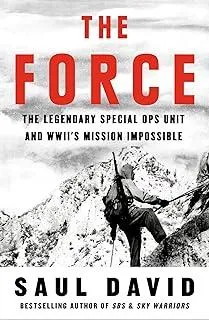Crucible of Hell
Okinawa: the Last Great Battle of the Second World War
(Author) Saul David'Excellent' Antony Beevor 'Saul David is a brilliant historian ... In shocking and jaw-dropping detail, he brings a battle that deserves far greater prominence and understanding vividly back to life' James Holland From award-winning historian Saul David, an action-packed and powerful new narrative of the Battle of Okinawa - the last great clash of the Second World War, and one that had profound consequences for the modern world. For eighty-three blood-soaked days, the fighting on the island of Okinawa plumbed depths of savagery as bad as anything seen on the Eastern Front. When it was over, almost a quarter of a million people had lost their lives, making it by far the bloodiest US battle of the Pacific. In Okinawa, the death toll included thousands of civilians lost to mass suicide, convinced by Japanese propaganda that they would otherwise be raped and murdered by the enemy. On the US side, David argues that the horror of the battle ultimately determined President Truman's choice to use atomic bombs in August 1945. It is a brutal, heart-rending story, and one David tells with masterly attention to detail: the cramped cockpit of a kamikaze plane, the claustrophobic gun turret of a warship under attack, and a half-submerged foxhole amidst the squalor and battle detritus. The narrative follows generals, presidents and emperors, as well as the humbler experiences of ordinary servicemen and families on both sides, and the Okinawan civilians who were caught so tragically between the warring parties. Using graphic eyewitness accounts and declassified documents from archives in three continents, Saul David illuminates a shocking chapter of history that is too often missing from Western-centric narratives of the Second World War.
Saul David
Saul David is a British historian, broadcaster, and author known for his works on military history. His most notable works include "Victoria's Wars: The Rise of Empire" and "Operation Thunderbolt: Flight 139 and the Raid on Entebbe Airport." David's writing style is characterized by meticulous research, engaging storytelling, and vivid descriptions of historical events. He has made significant contributions to the genre of military history by bringing lesser-known stories to light and providing fresh perspectives on well-known events. One of his most famous works, "Operation Thunderbolt," chronicles the daring rescue mission of hostages held at Entebbe Airport in Uganda in 1976. David's works have been praised for their accessibility and compelling narratives, making him a prominent figure in the field of military history.






